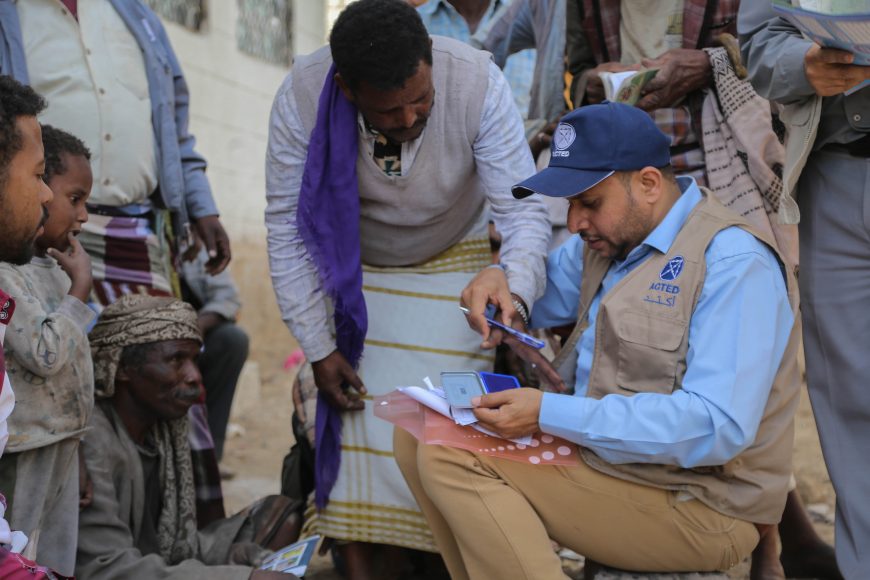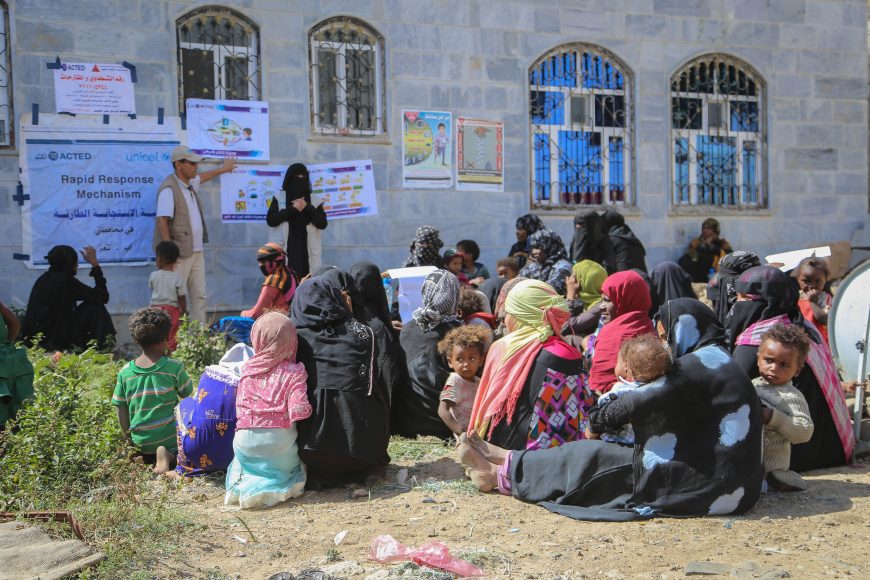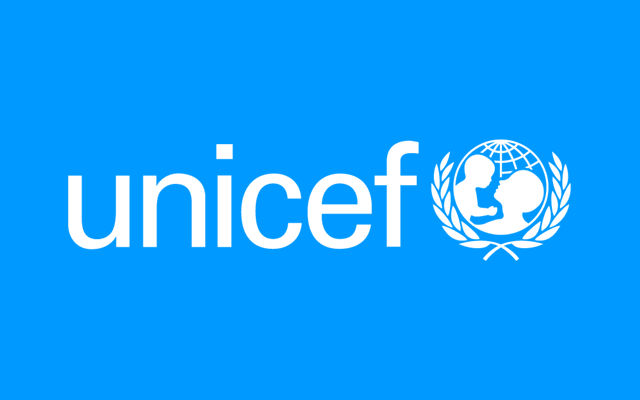Ibb, a fertile province in central Yemen, is now home to over 2,000 displaced Yemenis forced to flee their homes due to conflict. Even after several years, many families continue to reside in makeshift settlements built with any materials they can find, with little indication that their circumstances will improve.
Since 2019, through a Rapid Response Mechanism consortium project, ACTED was able to respond to the needs of the displacement affected population through rehabilitating WASH infrastructures such as water points, providing cash transfers and distributing non-food items including kitchen materials and mattresses.
Sahar’s Story
For this article ACTED spoke to Sahar, a single mother living with her family of five in Manasheer Alekhlas.
Manasheer Alekhlas is just a patch of a few spare metres on someone’s land where over 20 families, have come to settle. They gather whatever materials they can acquire along with distributions from humanitarian organisations in order to develop some kind of shelter. As with many of these sites, Manasheer Alekhlas has no basic infrastructure, such as water or electricity, and many of the families residing there lack essential daily necessities. This leaves the families living in crowded conditions, at the mercy of the elements and vulnerable to diseases.

Sahar talks about her husband who worked in a fish restaurant before the war. When he went to jail at the beginning of the conflict, she was left as the sole provider for the family. Although Sahar managed to find job as house cleaner, the money she earned was not enough to meet the family’s needs, such as paying their rent.
“My eldest daughter is 8 years old, and she helps me by selling tissues in the streets. She always complains of the hard work and that people insult her, but we don’t have a choice. We are always relying on the assistance that we get from the organisations because the money we earn is so little,” said Sahar.

We are always relying on the assistance that we get from the organisations because the money we earn is so little.
Sahar went on to say how the family of five shared three ruined blankets and the same number of mattresses. ACTED later provided sufficient blankets and mattresses for every member of her family, as well as cooking utensils. The ability to cook her family meals gave Sahar an enormous boost in morale.
In addition to the distribution of basic commodities, ACTED has also identified a malfunctioning well near the settlement that the organization has rehabilitated as part of the project. Before its rehabilitation, the families living in the settlement used to walk for several kilometres to get water. Sahar said “It is the best assistance I have received until now. I was suffering a lot from bringing water from far places. Now I can bring water easily and at any time I need it.”
“With ACTED’s assistance our lives are 100 times better,” said Sahar.
To date, ACTED has delivered cash assistance to over 8,000 families, enabled 7,700 individuals to access safe, clean water, and distributed over 1,600 kits of non-food items.
ACTED’s strategy in Yemen is based on 3 pillars: ADAPT, RECOVER and THRIVE. Under ADAPT, ACTED first understands the situation using local knowledge, then coordinates a response with local authorities, humanitarian partners and clusters, before responding to the remaining needs of displacement-affected populations, IDPs and host communities alike.
This project was implemented through a Rapid Response Mechanism consortium project with Action Contre la Faim (ACF) and the financial support of the UNICEF.
